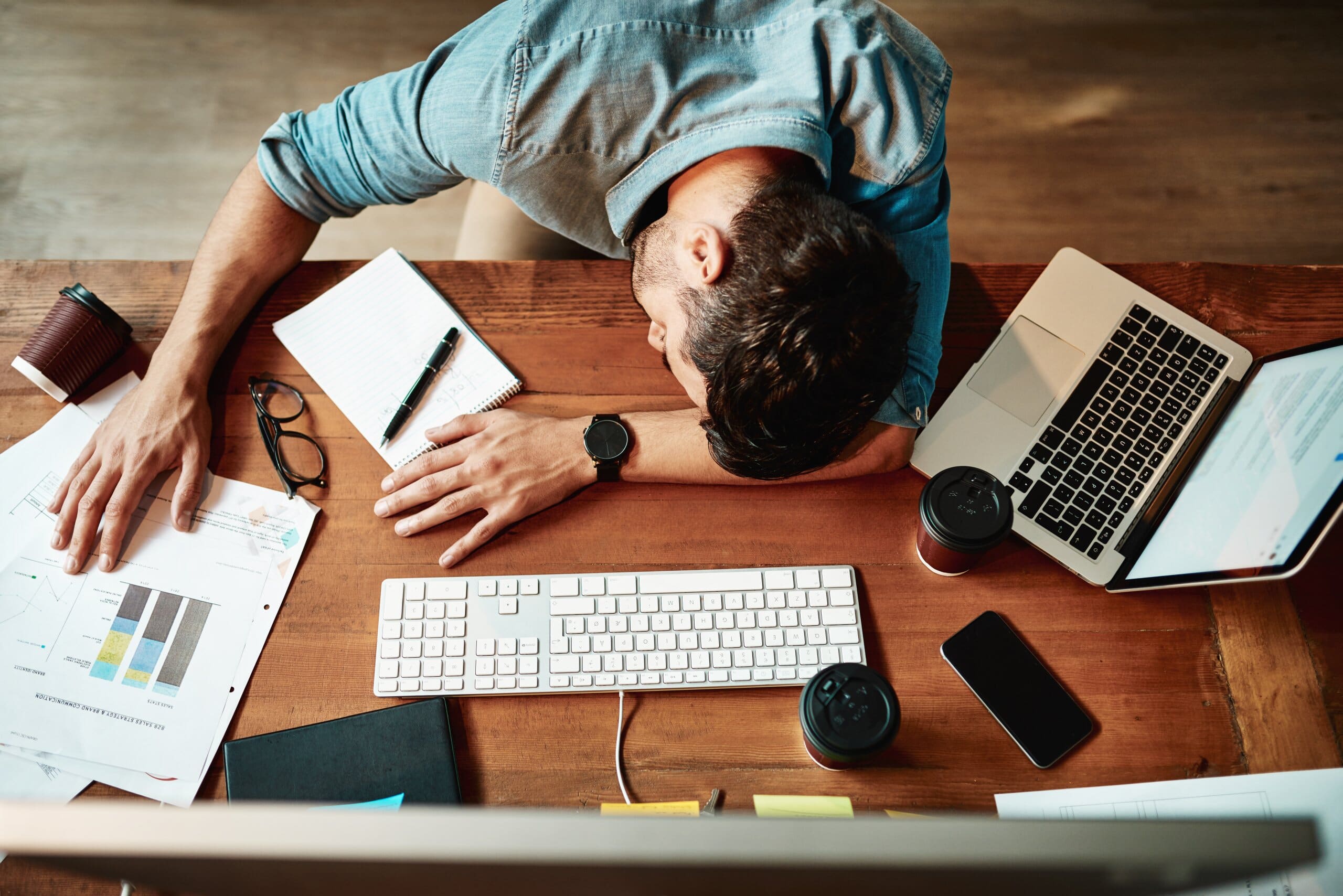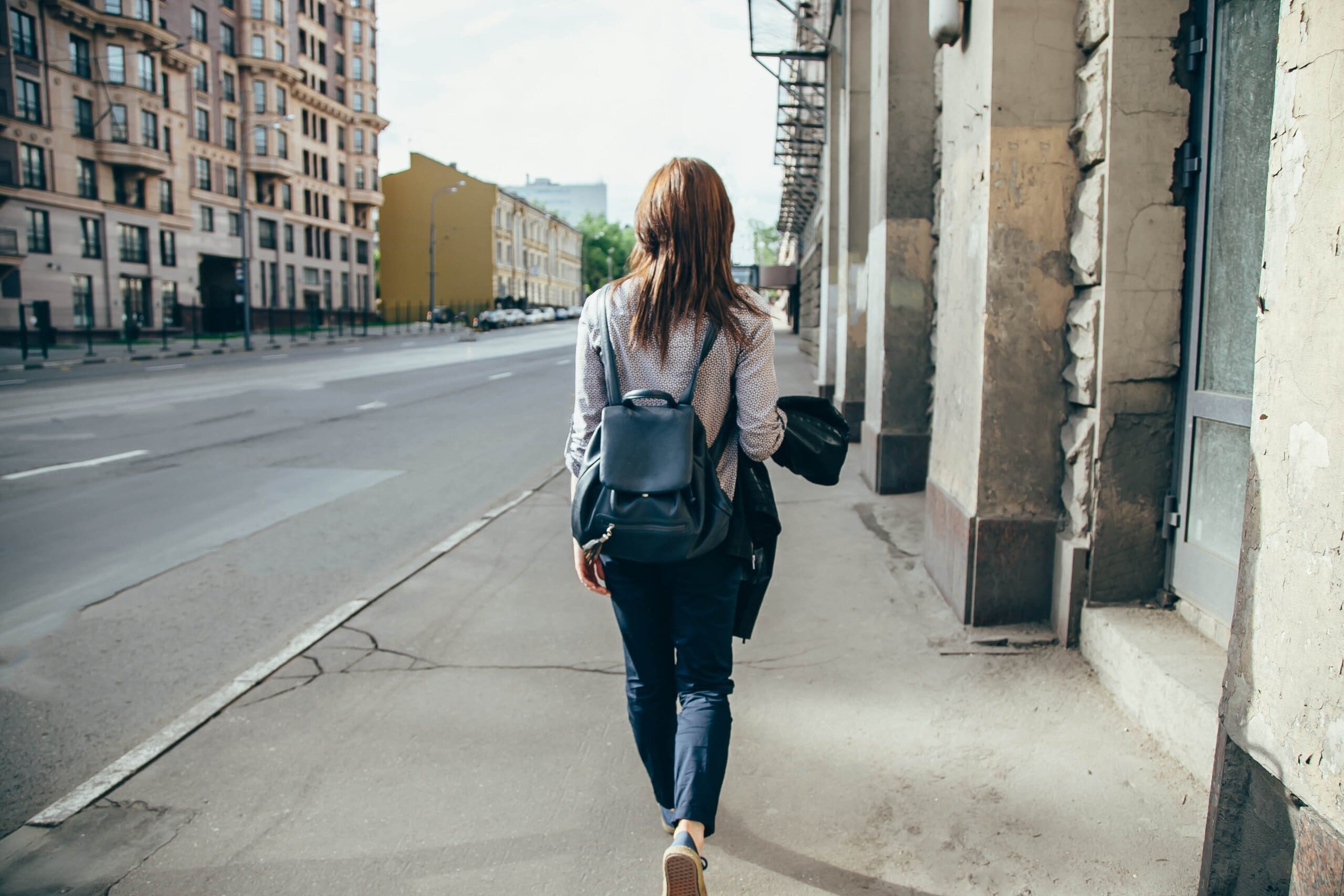Didn’t get enough sleep last night? Or want to beat the afternoon slump? Whatever reason you're feeling sleepy, here’s eight Sleep Expert approved tips to feel awake and energised, whatever the time of day.
You might think downing a coffee or energy drink will give you a boost - which it may well do - but the inevitable crash that comes afterwards isn’t always worth it.
So, find out how to feel more awake each day with our guide. These tips are caffeine-free, super simple to follow, and easy to incorporate into your daily life. Plus, we'll explain exactly what causes you to feel tired every afternoon...

How to feel more awake throughout the day
Excited to learn more about how you can wake yourself up when the afternoon slump hits? Here are our top 8 tips for giving yourself a boost for the second half of your day:
1. Shock your body and senses
It’s no secret that cold water can help us feel more alert. Among other health benefits, it’s one of the easiest ways to make you feel awake if you’re feeling dozy. Stimulate your senses by splashing cold water on your face. Washing your face and eyes will also feel refreshing, clearing away any grogginess.
Another way to instantly feel more awake is to chew on a sour sweet or strong peppermint gum. By suddenly shocking your senses, you’ll encourage circulation to your head, giving you a quick boost of energy.
2. Drink a glass of water for an instant energy boost
Keeping hydrated is not only proven to be energy-boosting, but it can boost your metabolism, too. Even mild dehydration can leave you feeling sleepy and tired, whilst negatively disrupting your mood.
So, rather than coffee, drink a cold glass of water. The colder the better, as this will also help to stimulate your senses and get your body working, helping you feel more awake. You could even include a magnesium capsule with your drink, as magnesium helps to improve your sleep, meaning you’ll be much more awake the following day.

3. Make sure you’re letting natural light into your room
If you’re lying in bed trying to find the energy to get up, keep your curtains open.
Light is the most important external factor affecting sleep. It plays a central role in regulating your body’s internal clock, otherwise known as your circadian rhythm. This signals when to be alert and when to rest. You should, therefore, open the curtains and blinds as soon as you wake up. If you’re tired after a relatively early alarm, this will help to signal to your body that it's time to wake up, helping you feel more alert.
Learning more about how your daily routine and circadian rhythm can affect sleep can help you understand how to feel more awake day to day. Being exposed to bright natural light signals your brain to stop producing the sleep hormone, melatonin, which makes you feel drowsy. So, make sure you’re exposed to sunlight as much as possible throughout the day.
4. Complete a 30-minute workout – even if it’s just a mid-afternoon walk
If you feel a dip in your energy in the afternoon, you should exercise for 30 minutes. Not only will it give you an instant energy boost, but it’ll help you sleep better that night. Many studies show that exercise and sleep are deeply interconnected. Exercising can improve your sleep quality and duration of sleep, whilst a healthy sleep-wake cycle ensures more strength and endurance when working out.

5. Exercise outside whenever you can
Whilst this may not always be possible when it’s cold, you should head outside for your workout or walk. Just 10 minutes spent in the sun can help boost your serotonin and stop you from feeling sleepy and/or sad. Plus, moving more is proven to help you sleep better, so you should try to move as much as you can throughout the week. It will help you feel tired that night, as your body will be itching to get some rest, so you'll sleep more deeply.
6. If you can, take a nap - but make sure to do it RIGHT
When done right, napping can offer great benefits – which is why so many cultures around the world are known for it, such as Spanish siestas. Like establishing a good nighttime routine, a simple nap has many benefits, from reducing fatigue to increasing alertness and, of course, improving your mood.
However, for a nap to be beneficial, there’s good science to it. Firstly, you must only sleep for between 10 to 20 minutes. Anything longer than 30 minutes can risk entering and interrupting a deep sleep cycle, which can leave you waking up groggy.
You also need to time your nap right. As your alertness naturally dips in the afternoon, you should pay attention to when you start to feel drowsy and nap straight away (if possible). However, this should be at least eight hours before your bedtime. Otherwise, it can impact your sleep that night.
For more tips about optimising your afternoon power naps, read our guide on how to take the perfect nap.

7. Never press snooze on your alarm
Unfortunately, many studies show that pressing ‘snooze’ can have more of a negative impact on your day than a positive one. This is because a five-to-10-minute snooze time only gives your body enough time to go into ‘light sleep’ as it waits to enter the deep sleep state, otherwise known as REM.
Interrupting this phase can put your body into fight-or-flight mode, triggering a response that increases your blood pressure and heartbeat and leaves you on high alert. Once you get up, you might start the day feeling stressed, which can make you feel tired throughout the day.
So, as hard as it might feel, try to get out of bed as soon as you hear your alarm go off. A good tip is to leave your alarm away from your bed so you have to get up to turn it off physically!
8. Chat to your colleagues
Chatting to your colleagues about something that interests you will stimulate your mind and help you feel more awake. If you’re finding your work boring, maybe chat to them briefly about after work plans, or tell them about your weekend.
Focusing your attention on something interesting and forcing yourself to engage in conversation will help get your brain working, increasing your alertness. Taking a break from your work and mixing up your routine will help to stimulate your brain, too, so try to move away from your desk.

What is the ‘afternoon slump’?
Want to know why you always feel so tired after lunchtime? Our circadian rhythm (internal body clock) tells our body that it doesn’t need as high levels of alertness after midday.
At around 3pm in the afternoon, it’s roughly 12 hours since most people were in the deepest stages of their sleep cycle (around 2 or 3am). This is when our circadian rhythm tells us it’s time to start thinking of getting some sleep, as we’ve been alert for too long.
This afternoon slump can feel even worse if you didn’t get enough REM sleep at the appropriate times the night before - your body will be pining for some deep sleep.
Get a consistently good night's sleep
So, now you know why you might be getting so tired mid-afternoon and what you can do to try and wake yourself up for those last few hours of work. But one of the tips we didn’t mention in our list for how to make yourself feel awake and refreshed during the day is to amend your sleep schedule for better, deeper sleep at night. That way, you’ll feel less tired during the day as your body will have had time to recharge.
We have plenty of helpful guides full of nifty tips and tricks on how to get a rejuvenating night's sleep, such as the benefits of meditating before bed, and even how to prevent night sweats if you're a hot sleeper.




